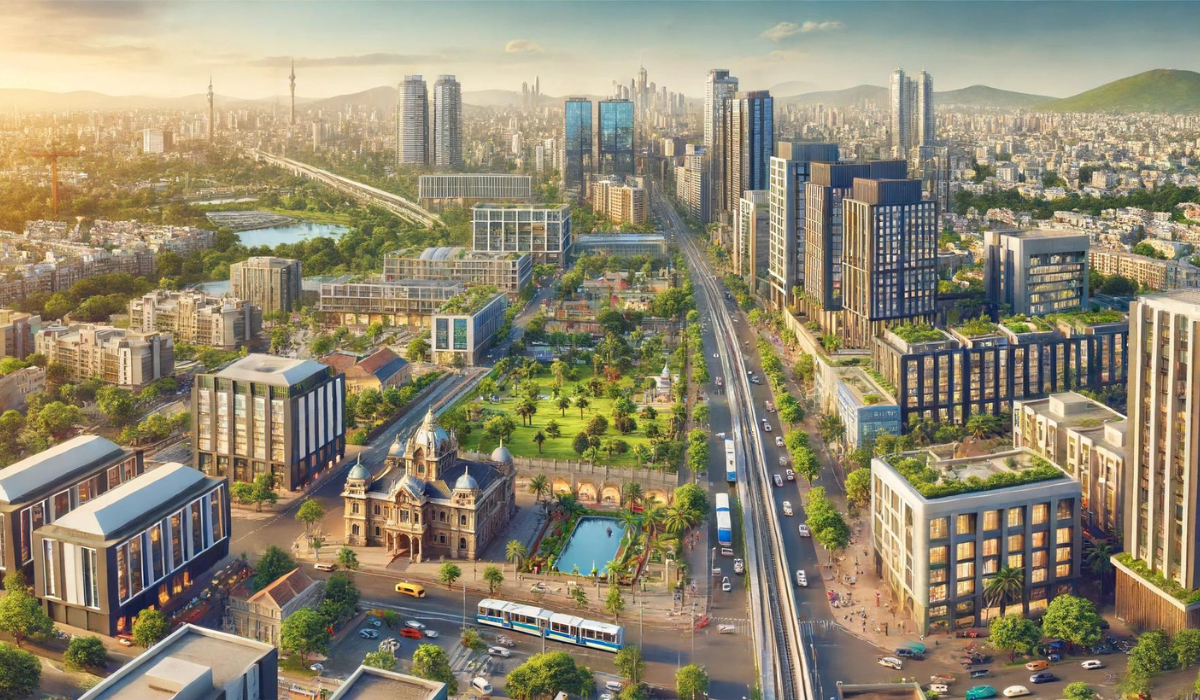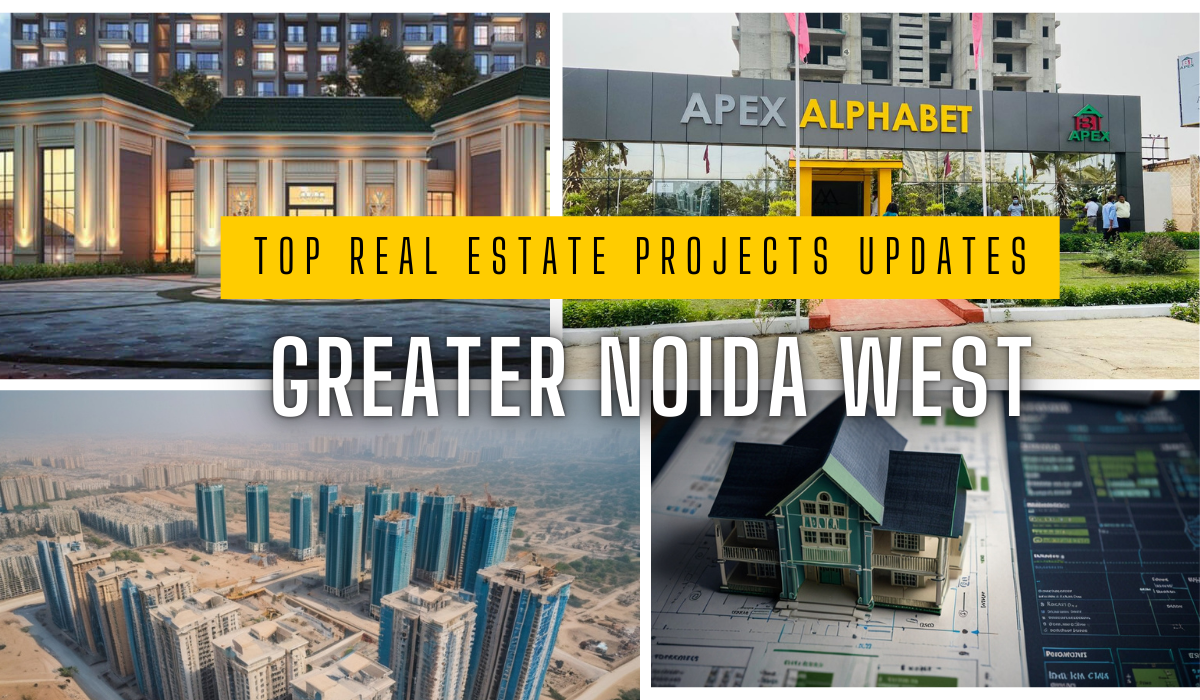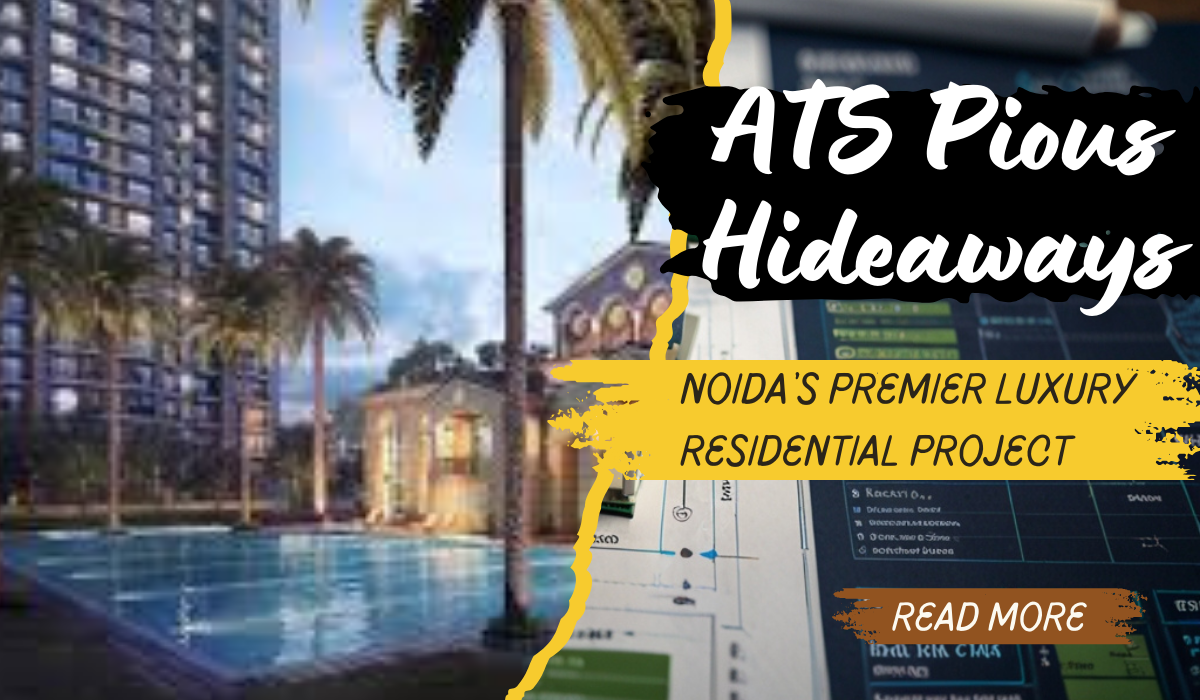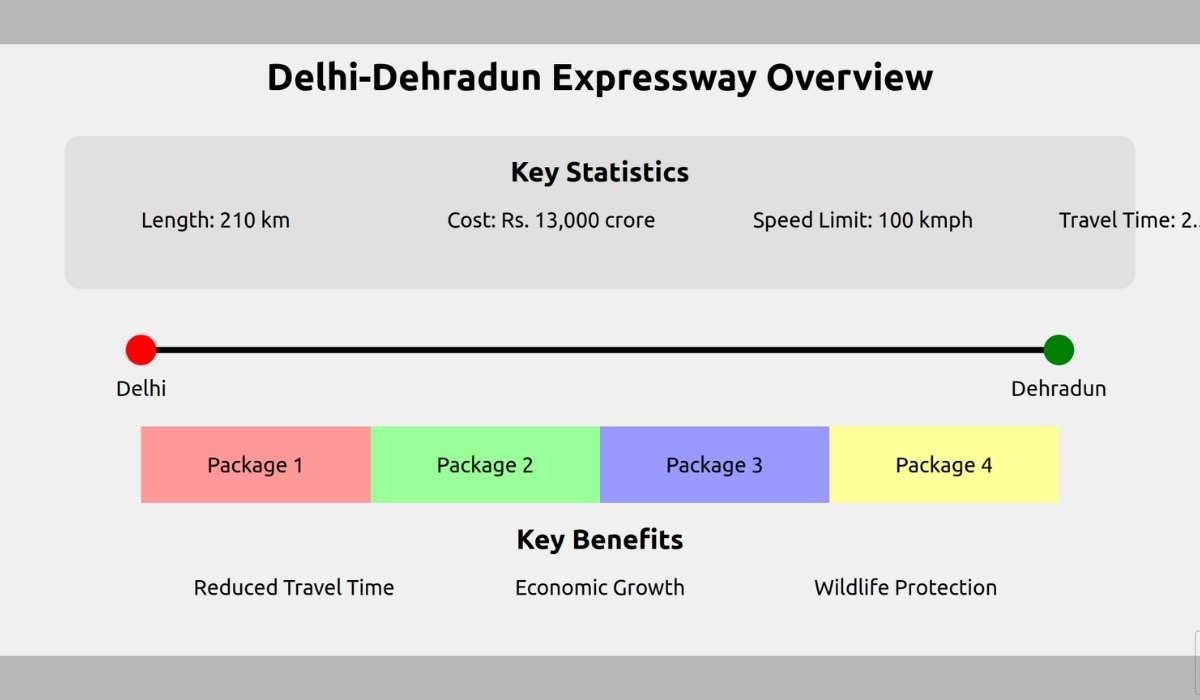Pune, often hailed as the cultural capital of Maharashtra, has evolved into one of India’s most dynamic and vibrant cities. With its rich history, top-notch educational institutions, and a booming IT industry, Pune offers a unique blend of tradition and modernity. This thriving city not only boasts a rich cultural heritage but also plays a pivotal role in shaping the real estate landscape of India.
The real estate sector in Pune is a cornerstone of the city’s economy, driving growth and development. As more people flock to Pune for its excellent quality of life and job opportunities, the demand for residential and commercial properties has surged. In this blog post, we will explore the key factors fueling Pune’s real estate growth, the emerging trends that investors need to watch, and the exciting opportunities that make Pune a hotspot for real estate investment.
Factors Driving Pune’s Real Estate Growth
Pune’s real estate market is driven by several key factors that have contributed to its robust growth and development:
A. Economic Growth and Job Opportunities
- Thriving Industries: Pune hosts numerous multinational corporations, IT parks, and manufacturing hubs.
- Professional Influx: The city attracts skilled professionals from across the country.
- Steady Economic Growth: Consistent economic expansion fuels the demand for residential and commercial properties.
B. Increasing Population and Urbanization
- Population Growth: Pune’s population has been growing steadily due to better education and career prospects.
- Urbanization: The influx of students and professionals leads to significant urbanization.
- Housing Demand: Diverse residential options, from affordable housing to luxury apartments, cater to the growing population.
C. Infrastructure Development
Unlock Your Dream Home Today!
Get personalized real estate insights delivered straight to your inbox.
- Pune Metro: Enhances connectivity and reduces commute times.
- Ring Road Expansion: Improves accessibility to various parts of the city.
- Airport Development: Boosts connectivity and supports economic activities.
- Government Investments: Proactive infrastructure projects enhance the quality of life and attract real estate investments.
D. Pleasant Climate and Quality of Life
- Moderate Weather: Pune is known for its pleasant weather year-round.
- Green Spaces: Lush greenery and well-maintained parks contribute to a balanced lifestyle.
- Quality of Life: Clean air, scenic surroundings, and a vibrant cultural scene make Pune an attractive place to live.
Summary Table
| Factors | Details |
|---|---|
| Economic Growth and Job Opportunities | Thriving IT and manufacturing industries attract professionals, driving housing demand. |
| Increasing Population and Urbanization | Steady population growth and urbanization increase demand for diverse residential properties. |
| Infrastructure Development | Projects like Pune Metro, ring road expansion, and airport development boost connectivity and investment. |
| Pleasant Climate and Quality of Life | Moderate weather, green spaces, and a high quality of life attract homebuyers and investors. |
Residential Real Estate Trends
Pune’s residential real estate market is witnessing several notable trends that cater to a wide range of buyers and investors:
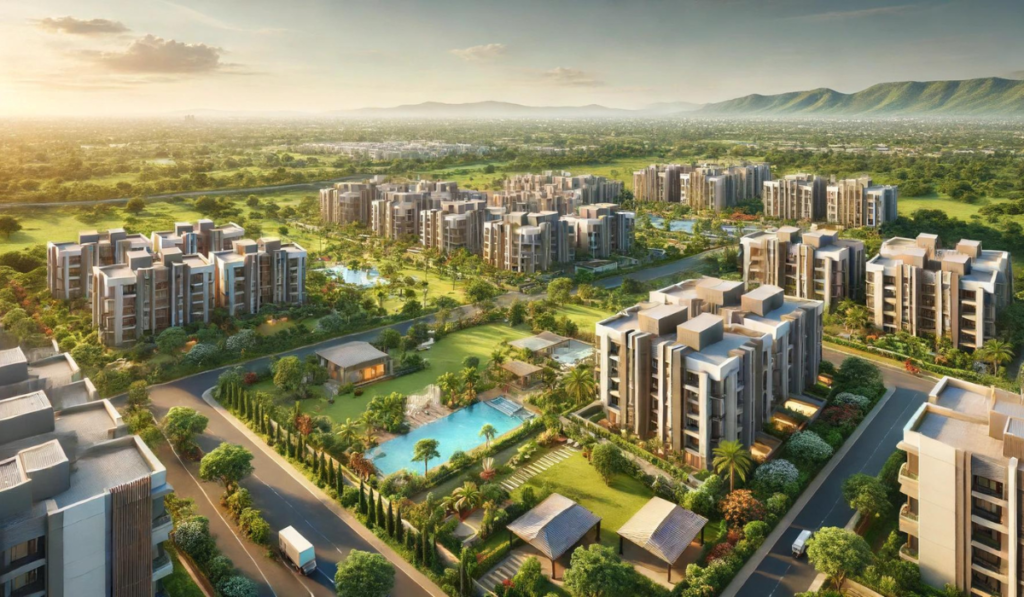
A. Affordable Housing Segment
- Government Focus: The Pradhan Mantri Awas Yojana (PMAY) scheme and other government initiatives emphasize affordable housing.
- Growing Demand: There is an increasing demand for budget-friendly residential projects in Pune.
- Market Response: Developers are launching numerous projects to meet the needs of first-time homebuyers and those seeking affordable options.
B. Mid-Range and Luxury Housing Projects
- Diverse Offerings: Pune caters to both mid-range and luxury housing segments.
- High-End Amenities: Luxury residential projects offer world-class amenities, such as swimming pools, clubhouses, and landscaped gardens.
- Target Audience: These projects attract professionals, executives, and affluent buyers looking for premium living experiences.
C. Emerging Micro-Markets
- Popular Areas: Keshav Nagar, Wagholi, Hinjewadi, and Bavdhan are emerging as popular residential destinations.
- Proximity to Key Hubs: These areas are close to IT hubs, educational institutions, and industrial zones.
- Development Potential: Emerging micro-markets offer significant growth potential and attract both buyers and investors.
D. Integrated Townships and Gated Communities
- Integrated Living: There is a growing trend towards integrated township projects that combine residential, commercial, and recreational spaces.
- Self-Contained Communities: These developments provide a balanced lifestyle with all necessary amenities within reach.
- Popularity: Integrated townships and gated communities are gaining popularity among homebuyers seeking convenience and security.
E. Smart Homes and Sustainable Living
- Technological Advancements: Increasing awareness of sustainable living and technological innovations drive demand for smart homes.
- Green Building Projects: There is a rising interest in eco-friendly and energy-efficient buildings.
- Future-Ready Homes: Smart homes offer advanced features such as home automation, energy management, and sustainable building materials.
Summary Table
| Trends | Details |
|---|---|
| Affordable Housing Segment | Government initiatives like PMAY boost demand for budget-friendly residential projects. |
| Mid-Range and Luxury Housing Projects | High-end residential projects with world-class amenities cater to mid-range and luxury segments. |
| Emerging Micro-Markets | Areas like Keshav Nagar, Wagholi, Hinjewadi, and Bavdhan are popular due to proximity to key hubs. |
| Integrated Townships and Gated Communities | Integrated township projects offer a mix of residential, commercial, and recreational spaces, gaining popularity. |
| Smart Homes and Sustainable Living | Rising demand for smart homes and green building projects due to sustainable living awareness and tech advancements. |
Commercial Real Estate Trends
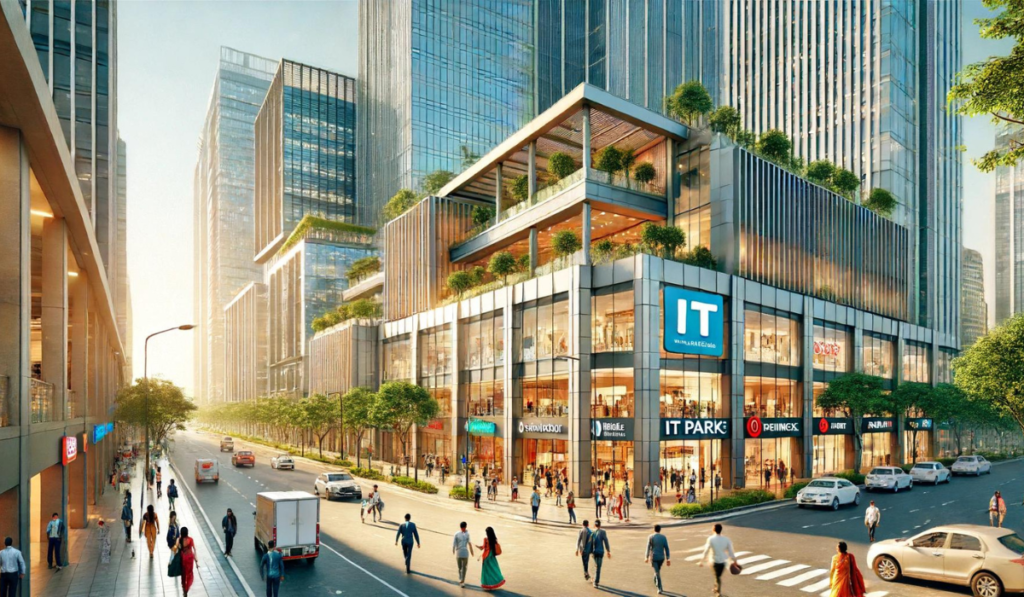
Pune’s commercial real estate sector is experiencing significant growth, driven by various emerging trends:
A. Office Spaces and IT Parks
- Established Hubs: Pune boasts several well-established IT parks and office spaces.
- Corporate Sector Growth: These facilities cater to the expanding IT and corporate sectors.
- Attracting Businesses: Modern infrastructure and amenities attract national and multinational companies to set up offices in Pune.
B. Co-Working Spaces and Shared Offices
- Rise of Startups: The growing startup ecosystem in Pune fuels the demand for flexible office solutions.
- Freelancer Needs: Increasing numbers of freelancers seek affordable and flexible co-working spaces.
- Collaborative Workspaces: Co-working spaces offer networking opportunities and community-building activities, making them popular among young professionals.
C. Retail and Entertainment Complexes
- Diverse Offerings: Pune has seen a surge in retail and entertainment complexes that provide a wide range of shopping, dining, and leisure options.
- Consumer Demand: The growing middle class and urban population drive the demand for modern retail spaces.
- Lifestyle Centers: These complexes often serve as lifestyle destinations, combining retail, entertainment, and social activities in one place.
D. Warehousing and Logistics Centers
- Strategic Location: Pune’s strategic location makes it an ideal hub for warehousing and logistics.
- E-commerce Growth: The booming e-commerce industry increases the demand for efficient logistics and distribution centers.
- Infrastructure Support: Improved infrastructure and connectivity support the growth of warehousing and logistics facilities.
Summary Table
| Trends | Details |
|---|---|
| Office Spaces and IT Parks | Well-established IT parks and office spaces support the growing IT and corporate sectors. |
| Co-Working Spaces and Shared Offices | Increasing demand from startups and freelancers for flexible and collaborative workspaces. |
| Retail and Entertainment Complexes | Growth in retail and entertainment complexes offering diverse shopping, dining, and leisure options. |
| Warehousing and Logistics Centers | Strategic location and e-commerce growth drive demand for warehousing and logistics facilities. |
Government Policies and Initiatives
The government has introduced several policies and initiatives that have positively impacted Pune’s real estate market:
A. Pradhan Mantri Awas Yojana (PMAY)
- Affordable Housing: This scheme aims to provide affordable housing to the urban poor.
- Increased Demand: It has driven the demand for budget-friendly residential projects in Pune.
B. Smart Cities Mission
- Sustainable Development: Pune has been selected under the Smart Cities Mission, focusing on developing sustainable and citizen-friendly urban spaces.
- Infrastructure Boost: This initiative has significantly boosted Pune’s infrastructure development and attracted real estate investment.
C. Real Estate Regulatory Authority (RERA) Act
- Transparency and Accountability: The implementation of RERA has brought transparency and accountability to Pune’s real estate sector.
- Buyer Protection: It protects the interests of homebuyers and investors, ensuring fair practices in the market.
Summary Table
| Initiatives | Details |
|---|---|
| Pradhan Mantri Awas Yojana (PMAY) | Provides affordable housing to the urban poor, increasing demand for budget-friendly projects. |
| Smart Cities Mission | Focuses on sustainable and citizen-friendly urban development, boosting infrastructure and investment. |
| Real Estate Regulatory Authority (RERA) Act | Brings transparency and accountability, protecting homebuyers and investors. |
Challenges and Opportunities
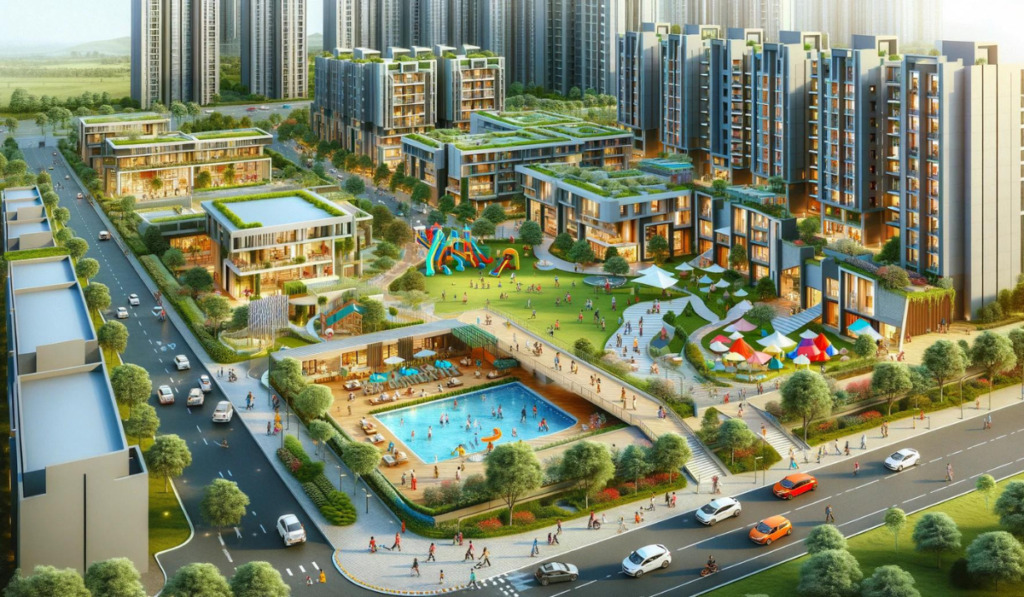
While Pune’s real estate market has a positive outlook, there are challenges and opportunities to consider:
A. Land Availability and Acquisition
- Growing Demand: Increasing demand for real estate makes land availability and acquisition challenging for developers.
B. Infrastructure Bottlenecks
- Development Needs: Despite significant infrastructure development, bottlenecks remain that need addressing to ensure smooth connectivity and accessibility.
C. Regulatory Challenges
- Approvals: Developers need to navigate various regulatory challenges and obtain necessary approvals to execute projects successfully.
D. Technological Advancements
- Enhanced Experience: The real estate sector is embracing technological advancements, such as virtual reality and 3D modeling, to enhance the homebuying experience and streamline processes.
E. Changing Consumer Preferences
- Evolving Needs: Developers need to stay attuned to changing consumer preferences and design projects that cater to the evolving needs of homebuyers.
Summary Table
| Challenges and Opportunities | Details |
|---|---|
| Land Availability and Acquisition | Increasing demand makes land acquisition challenging for developers. |
| Infrastructure Bottlenecks | Some bottlenecks need addressing to ensure smooth connectivity and accessibility. |
| Regulatory Challenges | Developers must navigate regulatory challenges and obtain necessary approvals. |
| Technological Advancements | Embracing tech advancements like VR and 3D modeling enhances the homebuying experience. |
| Changing Consumer Preferences | Developers need to adapt to evolving consumer preferences. |
Investment Outlook
Pune’s real estate market offers attractive investment opportunities:
A. Short-Term and Long-Term Prospects
- Varied Opportunities: Pune’s real estate market presents both short-term and long-term investment prospects depending on the type of property and location.
B. Potential Investment Opportunities
- Diverse Options: Investors can explore opportunities in residential projects, commercial spaces, warehousing, and logistics centers in Pune.
C. Risk Factors to Consider
- Market Risks: It’s essential to consider risk factors such as market fluctuations, regulatory changes, and project delays.
D. Expert Opinions and Market Analysis
- Informed Decisions: Investors should seek expert opinions and conduct thorough market analysis before making investment decisions.
Summary Table
| Investment Outlook | Details |
|---|---|
| Short-Term and Long-Term Prospects | Presents varied opportunities based on property type and location. |
| Potential Investment Opportunities | Includes residential projects, commercial spaces, warehousing, and logistics centers. |
| Risk Factors to Consider | Consider market fluctuations, regulatory changes, and project delays. |
| Expert Opinions and Market Analysis | Seek expert opinions and conduct thorough market analysis before investing. |
Conclusion
Pune’s real estate market is poised for significant growth in the coming years. The city’s strong economic fundamentals, increasing population, infrastructure development, and government initiatives make it an attractive destination for real estate investment. By understanding the emerging trends, challenges, and opportunities, investors and homebuyers can make informed decisions and capitalize on Pune’s thriving real estate market.
As Pune continues to grow and evolve, the real estate sector will play a crucial role in shaping the city’s future. With the right strategies and a long-term perspective, investors and developers can contribute to Pune’s growth story and reap the benefits of this dynamic market.
Key factors driving Pune's real estate growth include economic growth and job opportunities, increasing population and urbanization, infrastructure development, and a pleasant climate and quality of life.
Pune offers a diverse range of housing options, from affordable housing projects supported by government initiatives to mid-range and luxury housing developments.
Emerging micro-markets such as Keshav Nagar, Wagholi, Hinjewadi, and Bavdhan are gaining popularity due to their proximity to key employment hubs and development potential.
Infrastructure development, including projects like the Pune Metro and airport expansion, enhances connectivity and accessibility, attracting real estate investments and improving the overall quality of life.
The government has introduced several initiatives, such as the Pradhan Mantri Awas Yojana (PMAY) and the Smart Cities Mission, which aim to promote affordable housing and sustainable urban development.
Trends in Pune's commercial real estate market include the growth of office spaces and IT parks, the rise of co-working spaces, and the development of retail and entertainment complexes.
Challenges include land availability and acquisition, infrastructure bottlenecks, regulatory hurdles, and the need to adapt to changing consumer preferences.
Investors can explore opportunities in residential projects, commercial spaces, warehousing, and logistics centers, with both short-term and long-term prospects.
Pune's pleasant climate, green spaces, and vibrant cultural scene contribute to a high quality of life, making it an attractive place for homebuyers and investors.
Technological advancements such as virtual reality and 3D modeling are enhancing the homebuying experience and streamlining processes in the real estate sector.
DISCLAIMER
The information provided on this website is for general informational purposes only. While we strive to keep the content up-to-date and accurate, we make no representations or warranties of any kind, express or implied, about the completeness, accuracy, reliability, suitability, or availability of the information, products, services, or related graphics contained on this website.
In no event will we be liable for any loss or damage including without limitation, indirect or consequential loss or damage, or any loss or damage whatsoever arising from loss of data or profits arising out of, or in connection with, the use of this website.
Real Estate Investment Risks
Real estate investments involve significant risks and market volatility. Property values, rental rates, and market conditions can fluctuate. Past performance is not indicative of future results.
Before Making Real Estate Decisions
Before making any real estate decision, we strongly advise you to:
- Conduct thorough due diligence
- Consult with qualified legal, financial, and real estate professionals
- Carefully review all relevant documents and contracts
- Consider your personal financial situation and investment goals
This website does not provide legal, financial, or investment advice. All content is for informational purposes only and should not be construed as professional advice or recommendations.
By using this website, you acknowledge and agree to these terms. We reserve the right to modify this disclaimer at any time without notice.

